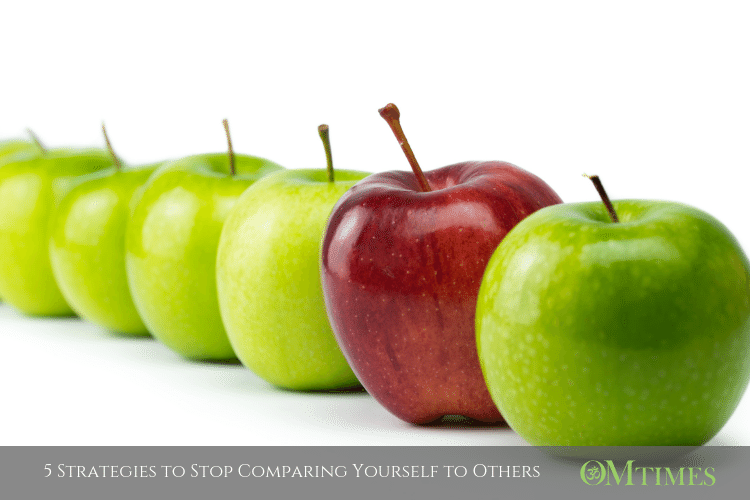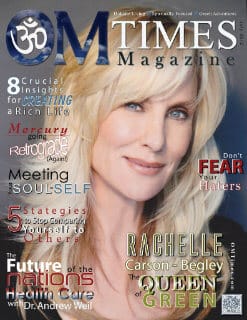5 Strategies to Stop Comparing Yourself to Others

Comparing yourself to others can come from low self-esteem and lack of belief in the integrity of our own unique life path.
Stop Comparing Yourself to Others
As a psychiatrist, I realize that comparing is a natural tendency we all have. It can be absolutely neutral, as when you merely evaluate similarities and differences. Such comparison is essential for astute reasoning. It’s also productive if you’re inspired to emulate another’s impressive traits. However, it becomes dysfunctional when it stirs envy and jealousy if you judge yourself as better as or less than others. Think about it: without comparisons, jealousy and envy couldn’t exist. Interestingly, it’s more common to feel inferior to those with “more” than to feel grateful compared to those with “less.”
We’re a society of comparison junkies. It starts from day one. Babies are compared to each other. Who’s smarter, cuter, more precocious? Then comes grammar school. I remember a hideous game some of my king-of-the-hill classmates would play. They’d pick a target, usually the shy, insecure student. Then, in a taunting tone, they’d sing in unison, “There’s a fungus among us. Her name is (fill in the blank) fungus” until the poor kid, totally humiliated, slunk away. So, at school, there were basically the funguses and the non-funguses. Not so different from the breakdown of our comparisons in later life, interpersonally and politically. Shiites and Sunnis. White Supremacists versus Jews and Blacks. Protestants and Catholics in Belfast. Comparing yourself to others can preclude a bond of common fellowship and is a disservice to finding true worth. Either you’ll end up with the short end of the stick, or, if you deign to put yourself above anyone, you’re nowhere. (No one is above anyone else.) Self-esteem must come from simply being you.
In my book “Emotional Freedom,” I emphasize that comparing ourselves to others can come from low self-esteem and lack of belief in the integrity of our own unique life path. In a spiritual sense, comparing your path to another’s is comparing apples and oranges. Why? Your life is explicitly designed for your own growth. Every person you meet, every situation you encounter challenges you to become a stronger, more loving, and confident person. Try to appreciate the grace of both the hurdles and the joys you’ve been given. This is life’s legacy to you. Self-esteem comes from embracing this, working with what each day brings. How you spend your time here is up to you. Why squander it by comparing? Realistically, you’ll probably still do it. We all will. Even so, let’s strive to keep our eyes on ourselves to build self-esteem so we can become more emotionally free.
The following exercise will help you to turn jealousy and envy around. The more you practice it, the easier it will get.
5 Strategies to Stop Comparing and Build Self-Esteem
1. Choose a person you feel jealousy or envy towards.
Perhaps a coworker your supervisor favors. Or a cocky, well-off relative. Make this person your test case before you go on to transforming these emotions with others.
2. Behave differently.
Practice dealing with jealousy and envy by mindfully using humility and avoiding comparisons, even if the person irritates you. For instance, rather than automatically bristling or shrinking in your seat when your supervisor praises this co-worker, second her good ideas, a collegial gesture. Try not to feed into feeling “less than.” Instead, as an empowered equal, add your own good ideas, not letting their rapport or your wobbly self-esteem deter you. Although you have the right to be upset about your supervisor’s favoritism, a humble but confident approach will begin to improve things. In that instance and the situation with your well-off relative, practice the commandment “I shall not compare.” Shift your mindset to concentrate on what you do have, what makes you happy. Let that be the tone of your interaction.
3. Give to others what you most desire for yourself.
If you want your work to be valued, value others’ work. If you want love, give love. If you want a successful career, help another’s career to flourish. What goes around comes around, an energetic dynamic you can mobilize.
4. Learn from a rival’s positive points.
Get your mind off of what you perceive you lack and towards self-improvement. Yoko Ono says, “Transform jealousy to admiration, and what you admire will become part of your life,” an inspiring credo to live by.
5. Wish a rival well.
Even if it’s hard to do this, try. It helps you to turn negativity around to something more positive.
Enlisting these methods helps you take your eyes off of other people and back to yourself. The point is to appreciate what you have rather than focus on what you’re lacking. A big part of emotional freedom is developing self-compassion rather than beating yourself up. Praise yourself. Gain self-esteem from your efforts to deal with jealousy or envy positively. Showing humility and avoiding comparisons let you build self-esteem. It fosters a loving versus defensive posture in relationships.
Click HERE to Connect with your Daily Horoscope!
You will also enjoy Practical Tips for Emotional Gushers to Find Balance
About the Author
Dr. Orloff is a best-selling author, a psychiatrist, an empath, and is on the UCLA Psychiatric Clinical Faculty. She synthesizes the pearls of traditional medicine with cutting edge knowledge of intuition, energy, and spirituality. Dr. Orloff also specializes in treating empaths and highly sensitive people in her private practice. drjudithorloff.com
OMTimes Magazine is one of the leading on-line content providers of positivity, wellness and personal empowerment. OMTimes Magazine - Co-Creating a More Conscious Reality




